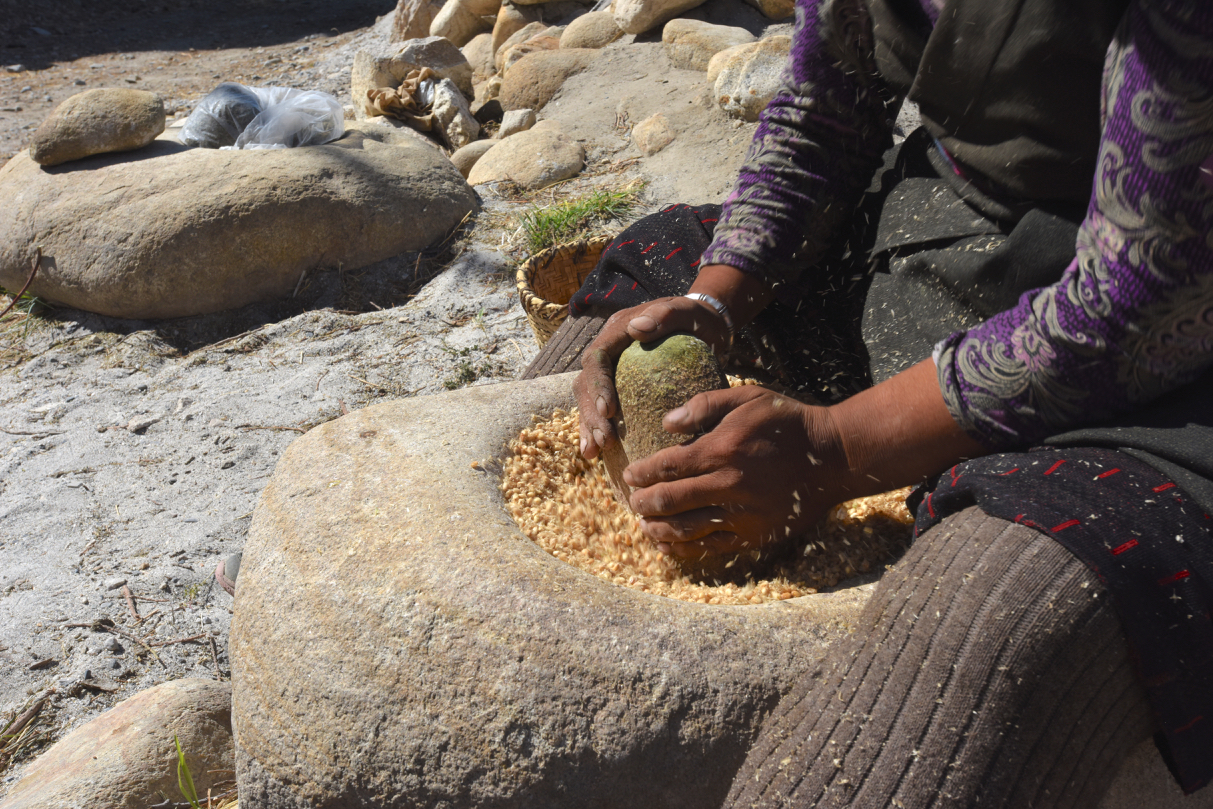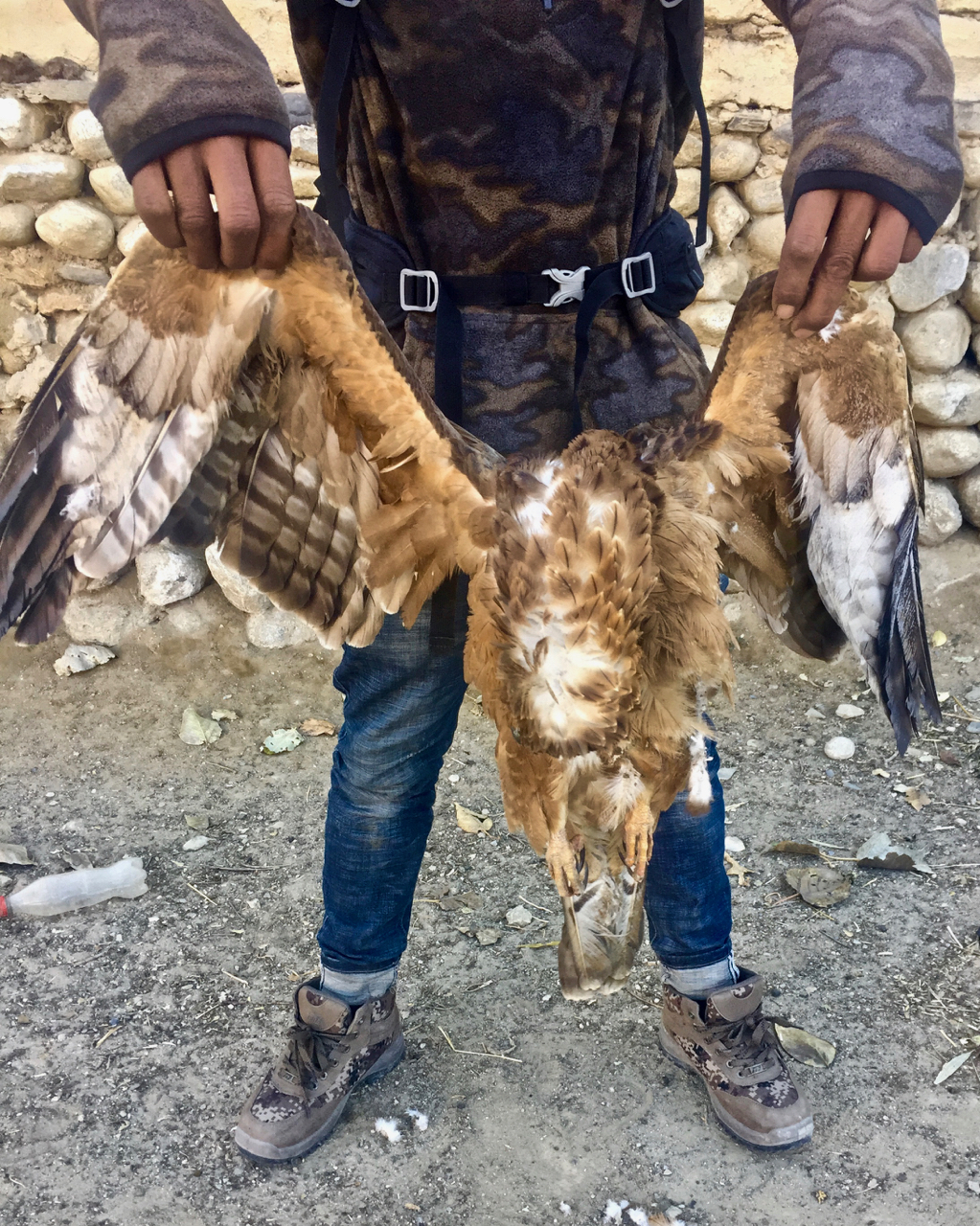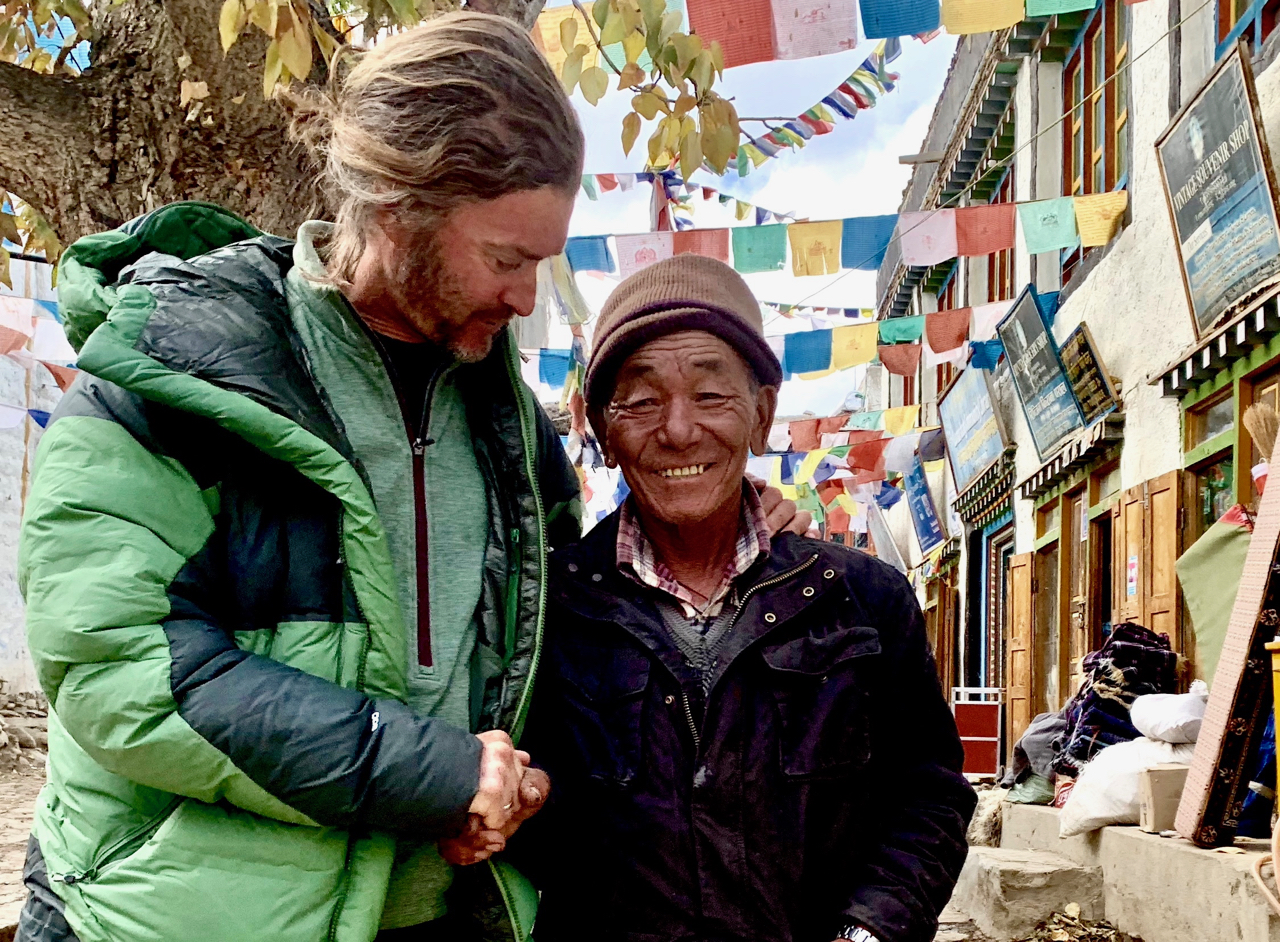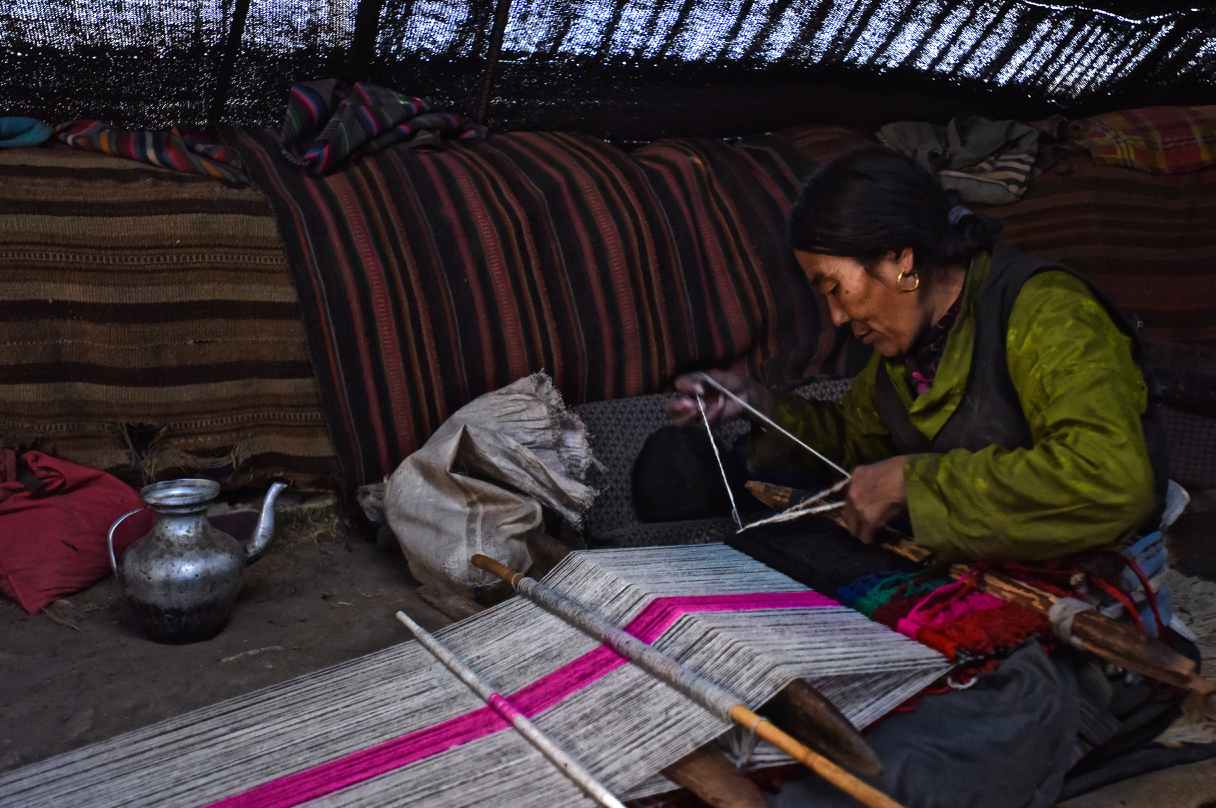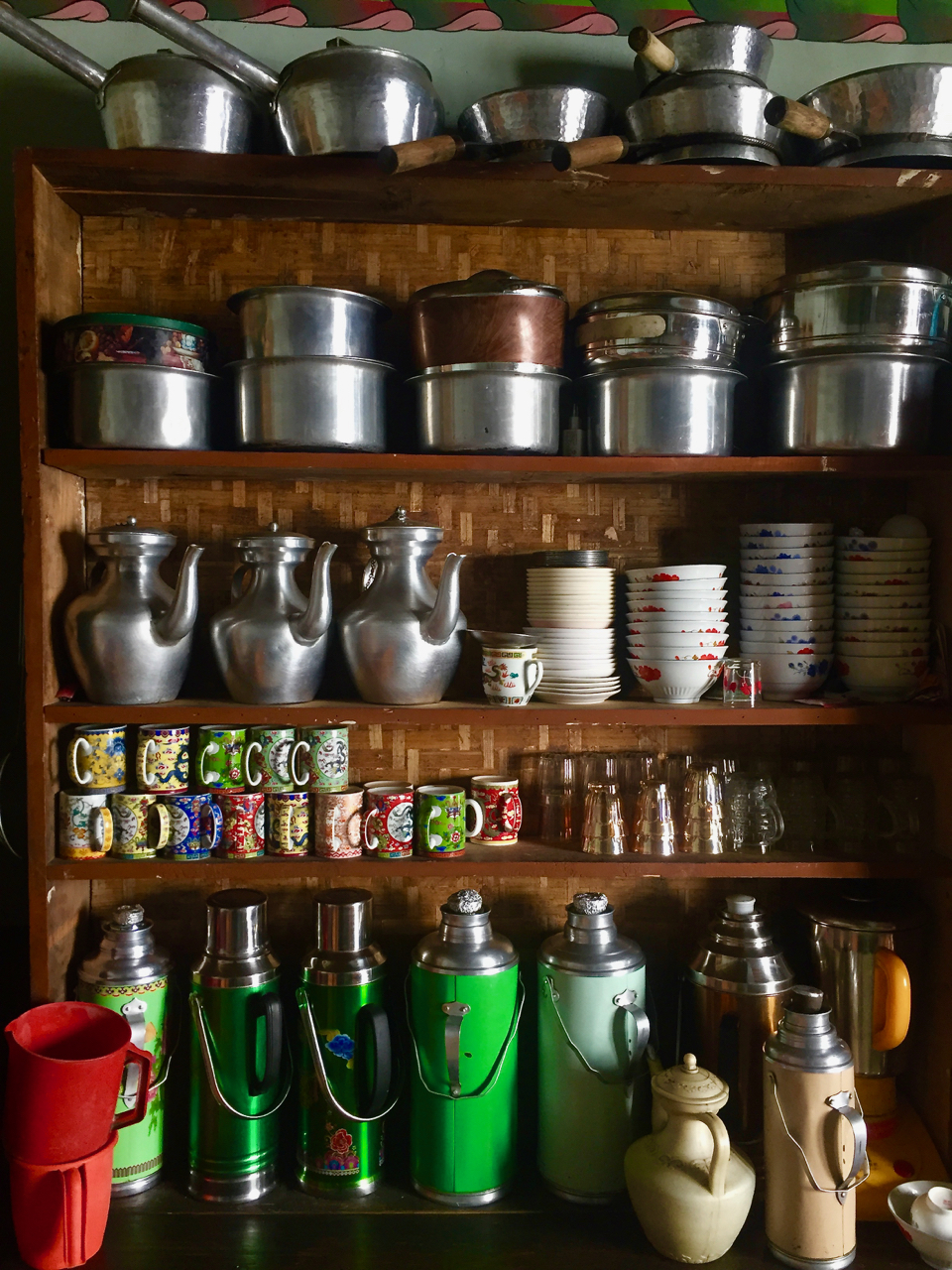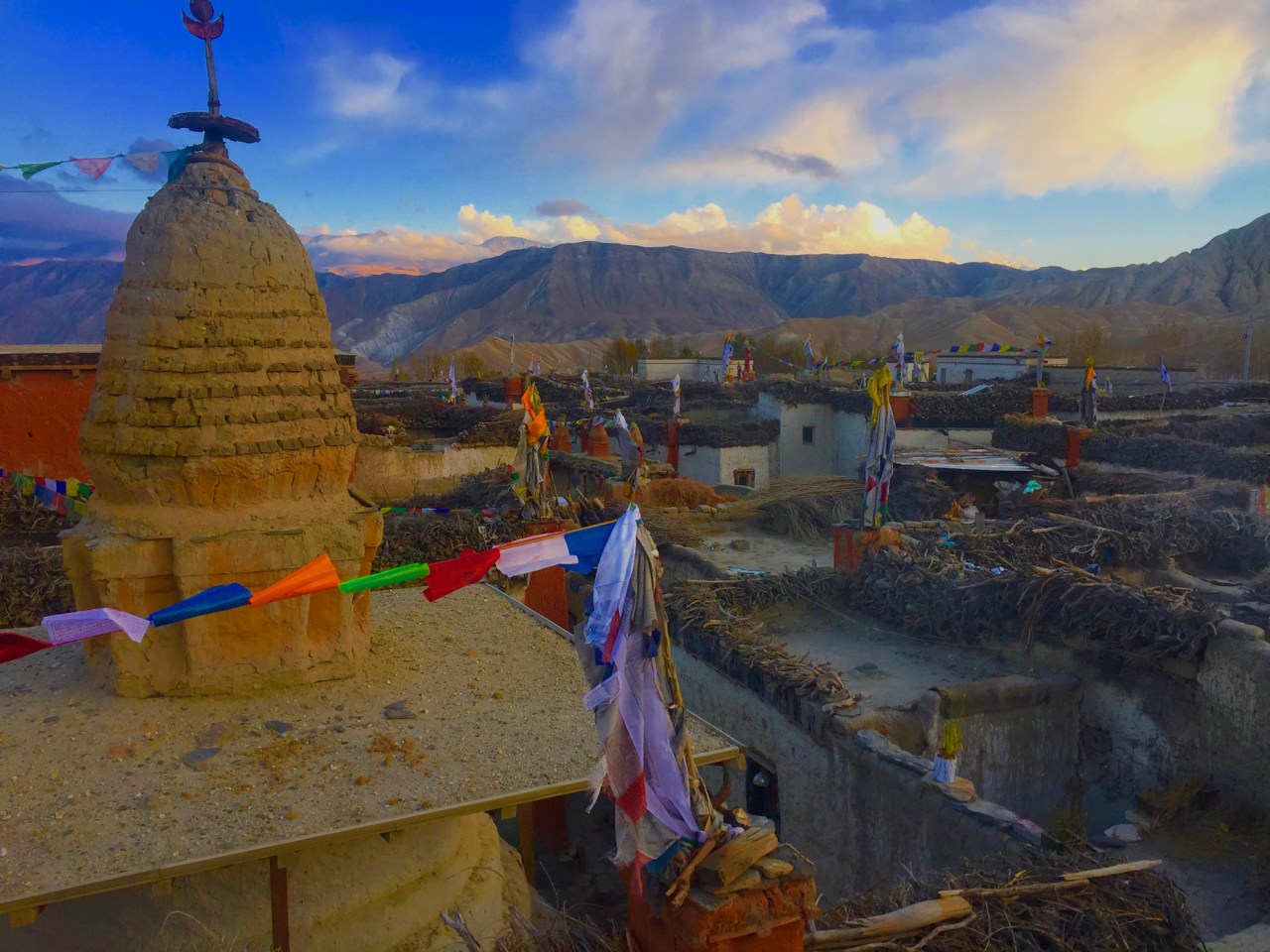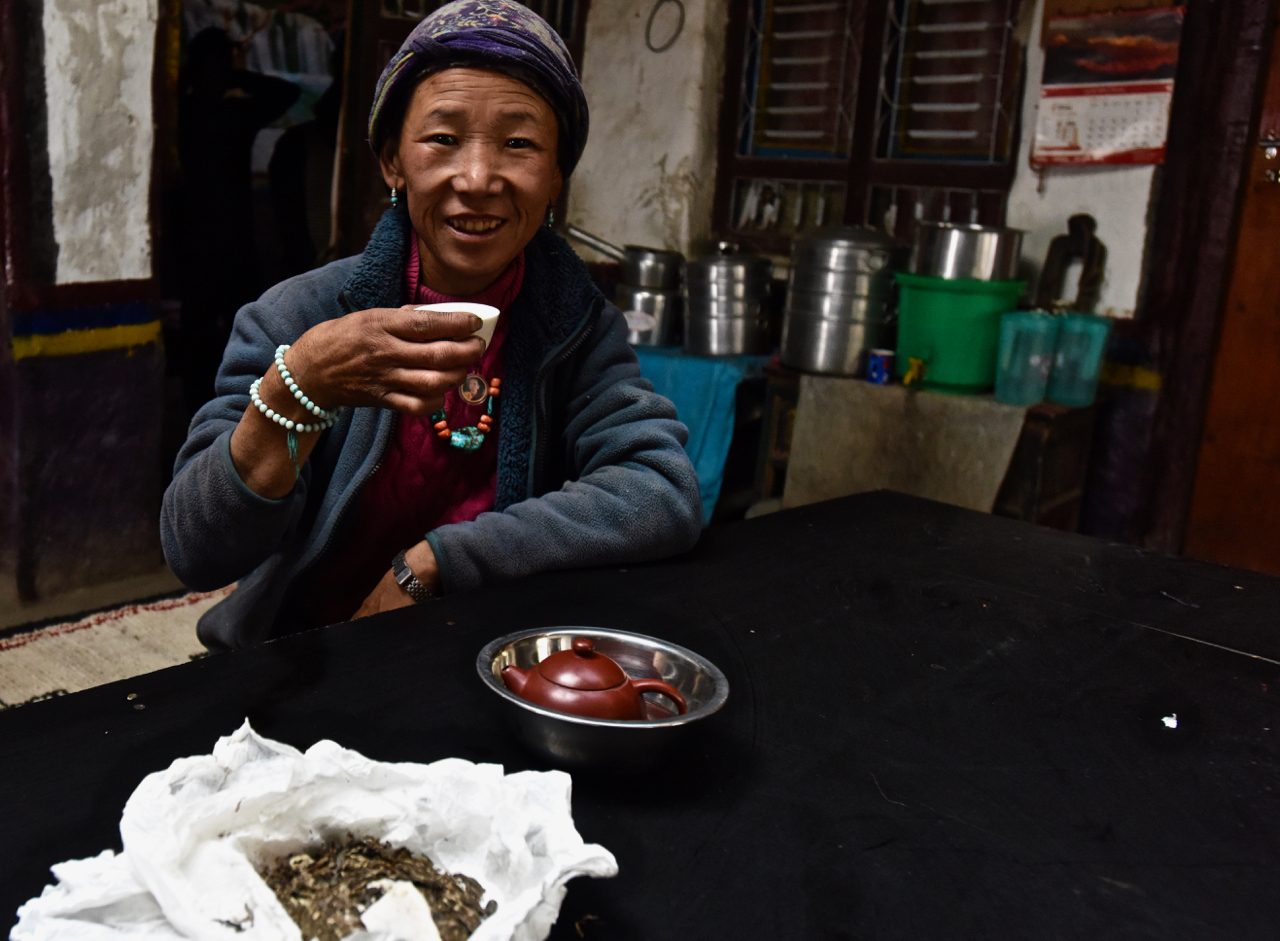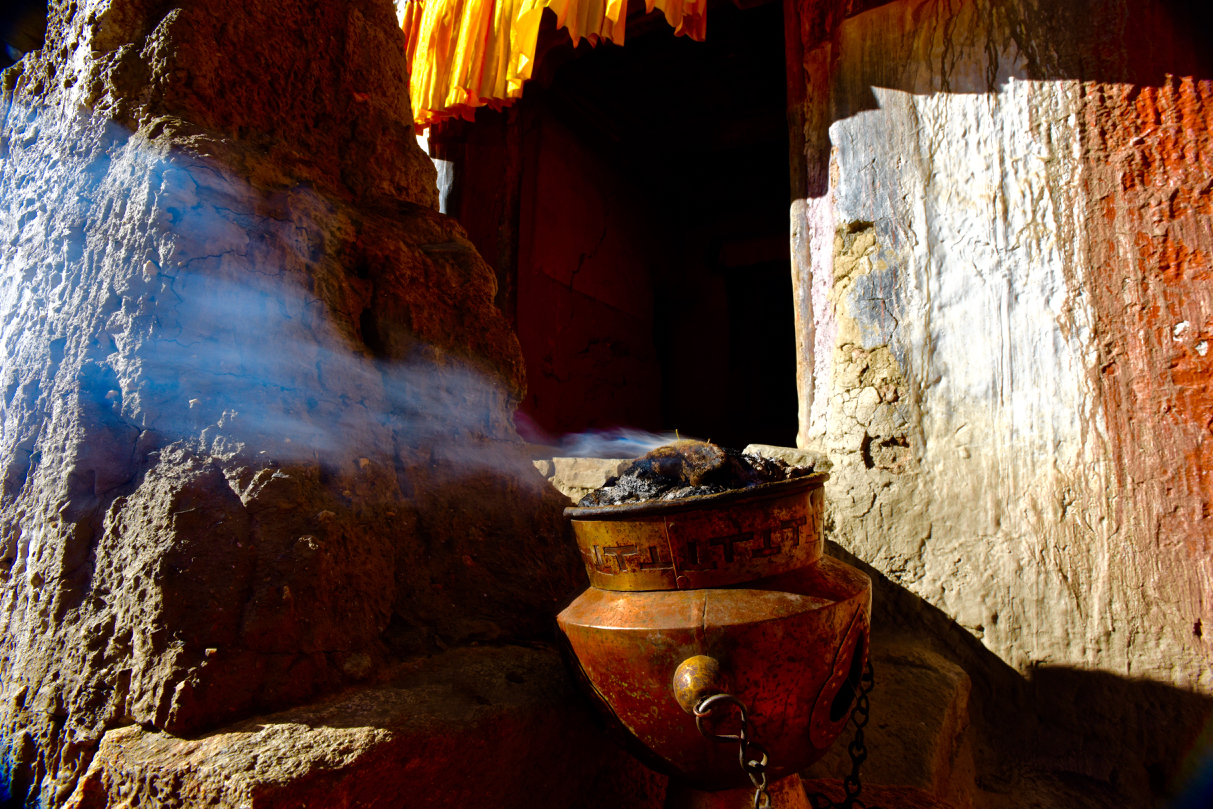Abu is chatty. Not prone to overly long sessions of speaking, Abu, when he is talking, usually has something to expel and it is always a treat watching it begin to emerge. Weeks in and heading west out of old Samzong to Lo Manthang, with our caravan of two and four-legged ones spread along a weaving line, Abu is going on how “the valleys need to talk to one another and they need to share”. His energy is ‘up’ and his eyes glow with some sort of inner force of conviction, which has decided it needs out. In the Tibetan Tantric practise, there is a term ‘airs’ which refers to vital energies or energy winds that rest in us and can, with training, be summoned. These ‘airs’ are associated always with the different levels of the mind. Abu’s ‘airs’ have been summoned and it is a delight to see them come. Chats during treks are somehow, in my mind, more lucid. Landscapes and Mother Nature edit down words (and breath) to direct thoughts unmolested by too much eloquence.
Within much of the mountain worlds, the issue of shared knowledge, technology, or thought has been one that has been a long and often predictable plague. Fear, safety, ignorance, territorial behaviour and the fact that ‘neighbouring valleys’ in the mountains didn’t necessarily mean ‘close’ all have contributed. Old disputes too – often centuries old – can keep people apart and kept simple knowledge ‘away’ from those who aren’t intimately connected to one another.
Abu himself has views on the different regions and people of ‘Lo’ (Mustang) and today he speaks of the need for all to collaborate and share ideas about “moving forward”. He speaks as much to himself and the winds perhaps as he does to me or Debra. At least the thoughts are coming. He thinks and is moved about his home, Mustang, as more of a entirety as we have travelled over the weeks. Tibetans I’ve met tended to refer to their homes by specific village names, valley names, or towns, no matter how remote rather than general regions. There is a strong associative and regional strength in their words. A true attachment and understanding of their ‘place’. Abu though is speaking about the greater region, the wider sphere, and there is a warming in me to hear him speak. Much of our journey has been about water and its ebbing, and its increasing unpredictability. Glacier melt is down and much of the eastern side of Mustang has struggled with precipitation. Some communities have tried to adapt, while others have simply withered up and moved on.
Our days have been spent looking at dried river beds, mountain tops that once gleamed with white and ice, and peering at long gone communities’ faded and abandoned homesteads. Abu has ‘felt’ this journey and its water-centric weight as it is after all, his domain.
The chill of mornings take longer and longer to dissipate. The sun’s blasts take longer to soften and heat the earth and they take longer to climb into the sky. Winter is here in many places already. It is a kind of dictation from above and below. It further edits down conversations and further pushes the notion of humility into the blood. Though nothing like my own Canadian homeland quite yet, winter above four-thousand metres comes in varying degrees of intensity…particularly as we spend every single day and night ‘out’ in it.
Lo Manthang pulls us east. It pulls us with its massive walls, though the ‘city’ widens every year with hotels that spread far beyond the walls. It was – and remains – a place of passage. In the past it was a northern frontier zone in Mustang. Tibet lies just north and trade through porous borders was still humming up until 2008. A belt road is planned crossing the Upper Mustang border with Tibet and there is much chatter about how this will affect the entire region.
Lo Manthang is also where I will see old trader, Kunga. A kind of gentle idol of mine, a kind of legend and one of the very last of the old traders who once roamed these mountain regions by caravan, trading anything of value. It will be the third consecutive year that I return to see him, and the third consecutive year I gift him a cake of Puerh tea. To come and give something that he used to trade in (and misses) is a gift in itself. He is a proud ‘lo-ba’ or native Mustang inhabitant, but embodies so much of what the greater Himalayas is about.
We set our tents in a small private yard behind a guesthouse in Lo Manthang and wander out and there – doing his thrice-daily circumambulations – is the taut and leathery figure of Kunga. As though placed, scripted, and waiting, there he stands.
Sitting in a small restaurant room that is just barely warmer than the outdoors, words and greetings are exchanged. The wisdom of the elders, and particularly elders who’ve long revered and let the elements shape them, is a kind of utter strength fused with an acceptance at thriving in such spaces. Strength here isn’t measured in anything overt and it isn’t really even spoken about at all. Kunga speaks with a sparkle in the eye of his days of trade, and the expanses of land, which he remembers. He speaks too of places that he never quite got to see. He reminisces about his mules and horses and what sold and what was worth much. He fiddles and shifts at times with his callused little hands that still hold immeasurable power. Being outside amidst such grand brutal open spaces has perhaps given Kunga just a slight bit of inordinate strength. When I ask about what is necessary in life, he answers instantly, “movement”. Waiting for more to come from him is in vain. He has spoken. It is “movement” that is necessary according to him.
Kunga and his energy feed and enthral me and simply knowing that his spirit is intact and his words still direct and honest gives a deep warmth. He speaks of landscapes like one might speak of a loved but slightly feared aunt or uncle. Reverential but not unrealistic. Direct and understanding.
Having had three separate ‘sessions’ with Kunga and our brief time in Lo Manthang has settled my blood. He is well, his words still sting with beauty, and I can now depart having been fed. We move west towards the nomadic community of Samduling. Samduling in its time was another of the sacred meditation zones but now there are simply black tents which ripple and snap in he wind.
Our little camp near Samduling is above 4000 metres and it will also prove to be the coldest night we encounter. It is the cold that knows no let up. It is a cold that encamps itself in the bones, settles in for as long as one’s own body will allow it. Winds aren’t so much screaming as they are like a unending series of massive waves.
We head south from Samduling along yet another of the old Khampa routes. It is a route that is still used by trekkers and locals alike in an arching and yawning swoop upwards and then a descent. Being on the western flank of the Kali Gandaki we are exposed to the sun early in the morning but the slow burn of the skin doesn’t quite seep into the bones….not quite.
Lo Gekar Monastery (or simply ‘Gar Gompa) sits in a sprig of trees that bend in the wind. One of the most ancient of the Tibetan world’s temples, it sits at 3943 metres and is, according to myth, legend, and every other tale told of the place, constructed at the sight were Padmasambhava (Guru Rinpoche) slew a demon. A teacher of tantric traditions, and widely considered the founder of the Nyingma sect of Buddhism (and the oldest). Mustang is one of the ancestral Tibetan kingdoms and a space embedded with the ancient sects of Buddhism.
Whatever battles were waged here, the monastery sits tucked away battened down in the winds with two dogs that seem perpetually disinterested in anything but catching the day’s rays of sun. Within the main temple itself, the cold is a still cold and many iterations of Padmasambhava sit with their various intense eyes staring out, imploring it seems. It is a place I’d like to sleep somehow. Pungent oil, smoke, and cold stone inundate the small room. Abu is bowed, I’m bowed, Debra is bowed. It is a place that drops the head but it is the eyes which hold me. It is the eyes of one of the particular statues of Padmasambhava. At the end of this almost month spent wandering, I’d expect gentle eyes and compassion but what I look at and what looks at me, are eyes that implore…eyes that push and challenge some self within.
Debra and I are fixated upon the water issues that afflict the entire swath of the Himalayas and this is another step of our observations and of recordings. So much in the mountains is immediate and ‘simple’ in many ways. Change has always been a part of the story of this spinning orb of a planet; it has always been an element in the realm of humans…it is perhaps learning (or relearning), and sharing with one another the ways of adaptation that needs a reset. It is too about linking these hulking, wind-blasted water towers with the faucets of the urban centres. All is connected.
Perhaps it is the perfect place to end or as Abu likes to say “a good place to maybe begin something else”. Those eyes of the tantric master Padmasambhava remain like blue orbs in my head following me for the remaining days.
Mustang will remain and it will continue to change and evolve with time. Abu too will evolve and change…and so too have I changed with this journey. In the ‘Tibetan Book of the Dead’, Padmasambhava is attributed with saying of this idea of change, past, and present, “Abandon your notions of the past…cut off your mental associations regarding the future, without anticipation. Rest in a spacious modality, without clinging to the thoughts of the present”. Not quite sure I’ll be able to fully forget those eyes nor be anticipating another round of Mustangs colours…or Kunga’s words.

